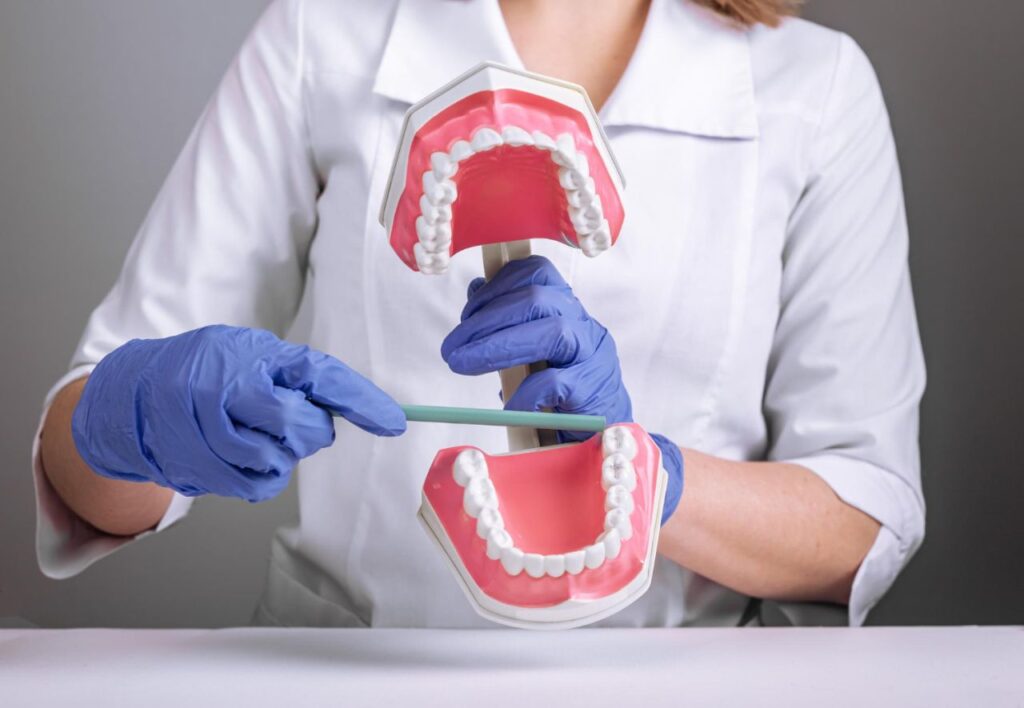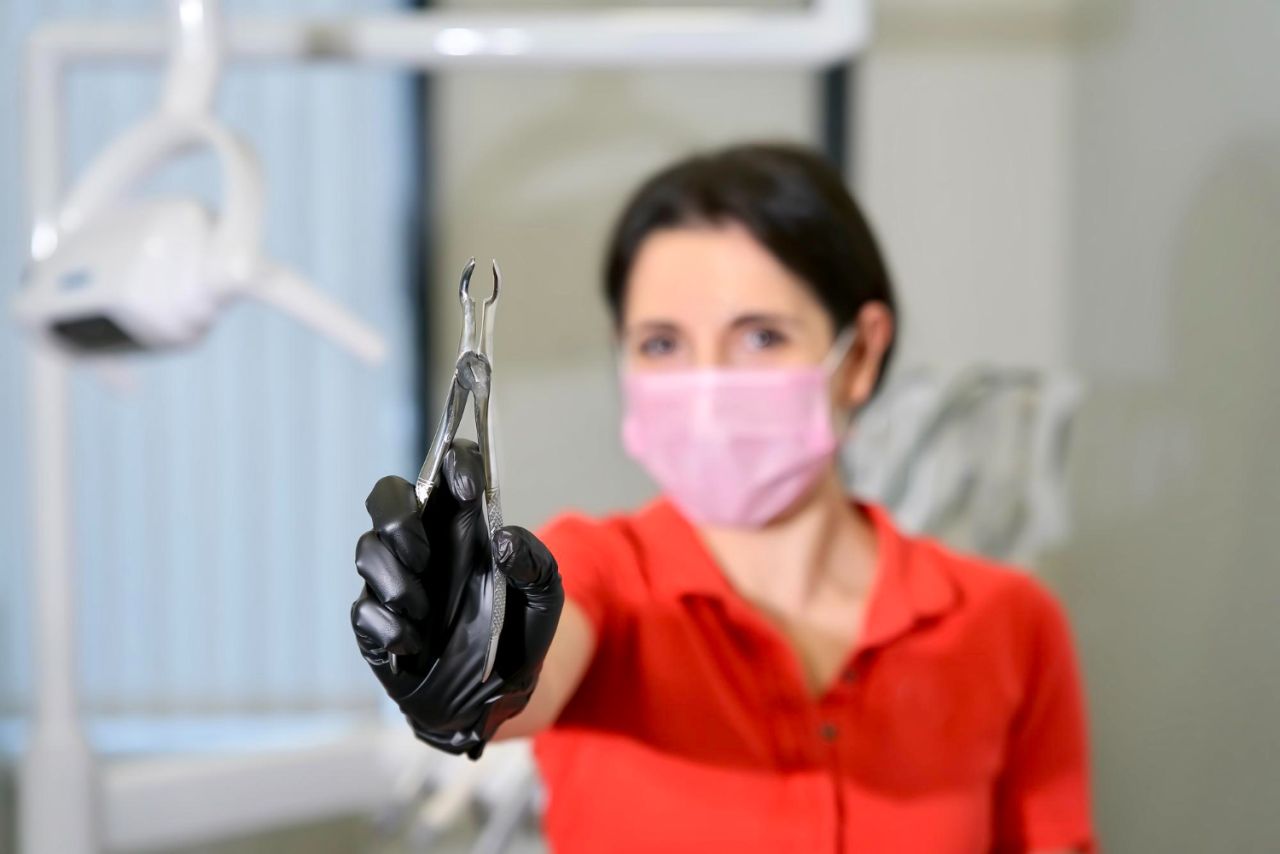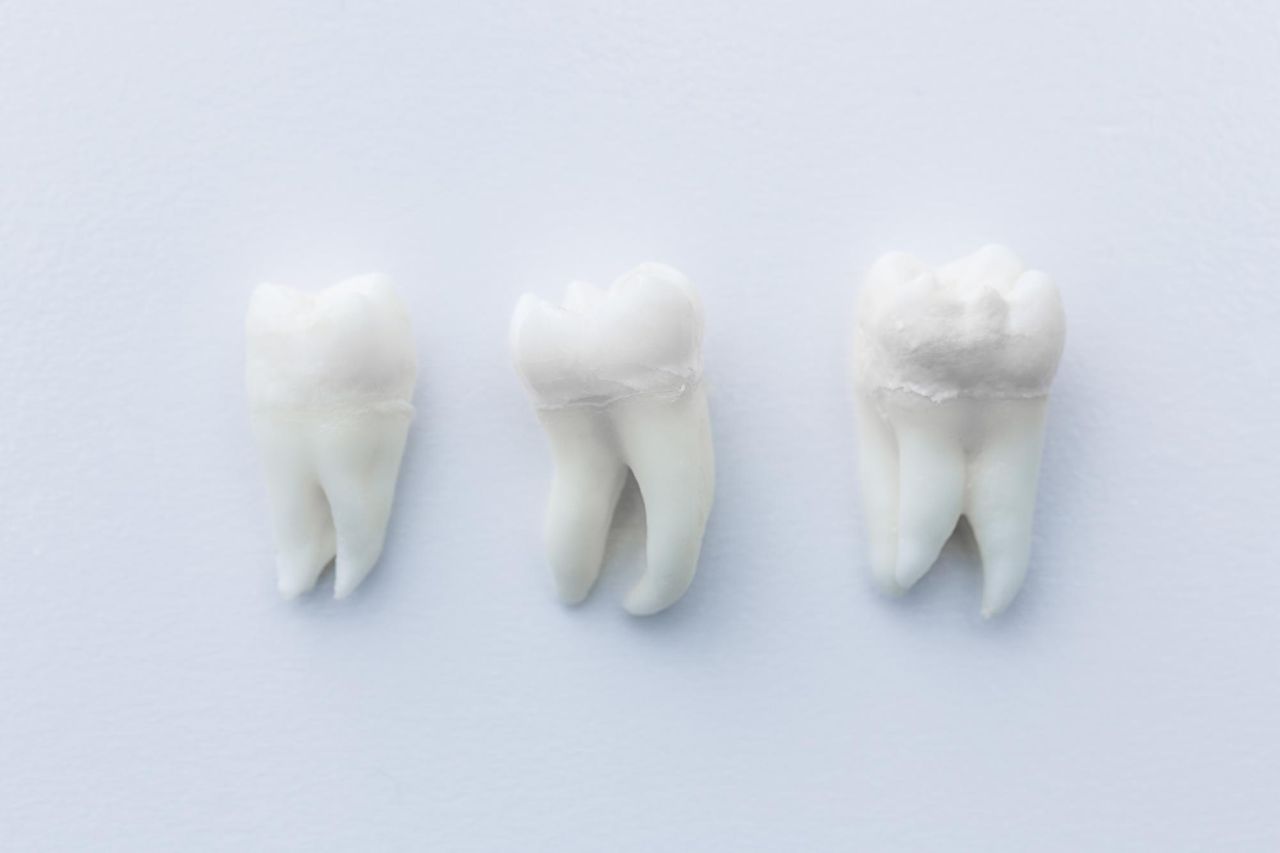Wisdom Teeth Pain, Symptoms And Extraction

Do you feel a throbbing, stabbing pain coming from the back of your jaw? Does it get worse when you attempt to chew food or yawn? If so, you may have an issue with one of your wisdom teeth. Wisdom teeth are molars that typically emerge in the late teenage years and early adulthood.
While their removal is commonly recommended due to overcrowding issues or other dental problems they can cause, many people worry about what pain comes with extraction.
We’ll discuss symptoms associated with wisdom teeth pain and how it is managed prior to tooth extraction. We will also go over some tips for recovering from having your wisdom teeth out!
Have you recently been told that you’ll need your wisdom teeth extracted? We understand the mixed emotions and questions this brings up.
Though it may feel overwhelming, we are here to help! In this blog post, we will give you an overview of the causes and symptoms of wisdom teeth pain, what happens during a removal procedure and how to optimise your recovery. Before you know it, you’ll be smiling confidently in no time!
Let’s get started!
Overview
In most cases, a person has four wisdom teeth, with two located on each side of the mouth (1 on the bottom jaw and one on the top jaw). However, the number of wisdom teeth that a person has might vary greatly from person to person.
The wisdom teeth are the very last set of molars to erupt into place in your mouth. In most cases, they manifest themselves between the ages of 18 and 24 years.
There are instances in which a wisdom tooth doesn’t really erupt into the mouth in the correct manner. It is possible for it to become lodged either beneath your gum or when it is trying to push through your gum. This condition is known as having wisdom teeth that are impacted.
What Are Impacted Wisdom Teeth?
The wisdom teeth, also known as the third molars, are the teeth that grow at the very rear of the mouth, behind the second molars.
They do not perform any useful role since the second molars are responsible for breaking down food. Because many individuals’ mouths do not have enough space to accommodate an additional set of molars, dentists often advise that these teeth be extracted.
It is possible for a tooth to become impacted when it tries to erupt through the gum tissue, but there is insufficient space for it due to the development of a wisdom tooth.
There are a few various angles that wisdom teeth can erupt at, and occasionally they even face the wrong way. Because of this unusual placement and the lack of sufficient space, the tooth will become lodged underneath the gums.
Different Kinds Of Impactions
In order to assess whether or not you would benefit from having your wisdom teeth extracted, dental professionals will be required to conduct a discussion with you. In order to evaluate whether or not your wisdom teeth are impacted, whether or not there is space for them to emerge, and how challenging it will be to get them extracted, a specific type of x-ray called a panorex will be obtained of your mouth and jaw.
- Impaction of the soft tissue occurs when there is insufficient space to enable the gum tissue to fold, preventing a thorough tooth cleaning.
- It is possible for the wisdom tooth to partly emerge through the jawbone, which is referred to as a partly bony impaction. Nevertheless, the tooth cannot perform its function in the act of chewing, which presents problems with cleanliness, among other issues.
- Complete bony impaction means no room for the tooth to emerge through the gums or the jawbone. Attempts to remove it, even if it is only faintly visible, involve difficult surgical procedures because it is permanently implanted in the jaw bone. In addition, the impacted wisdom tooth may be situated in a unique location, making it challenging to extract. This scenario may also play out if the jaw bone and other face features are of an unusual shape or size, which makes the extraction of this tooth more difficult.
Why Should I Have My Wisdom Teeth Extracted If They Are Impacted?
If a tooth is not addressed when it becomes partially or totally impacted, it can pose issues to the oral health of the patient in the near term as well as in the long term.
Because they press against the neighbouring molars, wisdom teeth that have been completely impacted can pose a risk to those molars and increase the likelihood of infection and misalignment.
Because it is challenging to reach and can easily trap food particles and bacteria, a partly impacted tooth is notoriously challenging to keep cleaned.
This makes the likelihood of acquiring tooth decay and cavities significantly higher. In addition, pericoronitis is a severe inflammatory gum disease that can develop if germs are allowed to gather around a tooth that has become impacted.
Signs Of Impacted Wisdom Teeth
1. Impacted Wisdom Teeth Cause Halitosis For No Apparent Reason
Those who have persistently foul breath despite their best efforts to improve their oral hygiene may have wisdom teeth that are impacted. Individuals with wisdom teeth that are impacted endure persistent foul breath because these teeth frequently cause microscopic wounds in the gums where they are attempting to break through.
Because of these microscopic wounds, food waste and germs, which are frequently the cause of bad breath, are collected. If you are having this symptom, please call your specialists so they can set up an appointment to extract your wisdom teeth.
2. Impacted Wisdom Teeth Cause Inflammation Of The Jaw

Another common sign of wisdom teeth that are impacted is inflammation all around the jaw, which can occur on either side.
It’s possible that your wisdom teeth, as far as these portions of your face, have not yet been injured or traumatised in any way.
When you go to see your dentist for an appointment regarding the extraction of your wisdom teeth, he is going to be capable of performing a thorough examination of your mouth to identify whether or not the inflammation you’re feeling is due to the fact that you have impacted wisdom teeth.
3. The Wisdom Teeth Can Cause Swelling, Bleeding, And Tenderness In The Gums If They Become Impacted
It is possible that you’re struggling from impacted wisdom teeth even if you are a diligent practitioner of excellent dental health care and have seen that the gums in the rear of your mouth are sore, bleeding, or inflamed despite the fact that you take good care of them.
Your wisdom teeth should be extracted, and your doctor suggests that you make an appointment for a checkup to verify the procedure as quickly as possible so that you may return to living your life pain-free.
4. Impacted Wisdom Teeth Cause Discomfort
One of the most typical signs of impacted wisdom teeth is the presence of discomfort and pain in the affected area.
When these molars become impacted, they cannot emerge through the gums correctly; however, this does not imply that they will give up attempting.
As a result of this, a significant number of individuals endure sharp pain on a regular basis. In the event that this seems like something you’ve been going through, give your doctor’s office a call right away to speak with a member of the staff about setting up an appointment for the extraction of your wisdom teeth.
The sooner you call your doctor, the sooner they will be capable of helping ease the discomfort you are experiencing.
5. Impacted Wisdom Teeth Bring On Sudden, Excruciating Headaches
Not only may wisdom teeth that are impacted lead to excruciating pain in the mouth, but they can also suddenly bring on terrible headaches. It is highly possible that you have wisdom teeth that are impacted if you have recently begun to suffer migraines like this one, particularly if you can link them to the discomfort in your jaw.
Make a call to the office of your dentist or oral surgeon right away to examine the possibility of having your wisdom teeth extracted.
The Repercussions of Wisdom Teeth Being Impacted
The following are examples of issues that can arise from wisdom teeth that are impacted:
- Cavities in the teeth and/or an infection of the gums There is a possibility that there will be a ‘pocket’ between the wisdom tooth and the gum or between the wisdom tooth and the neighbouring tooth (second molar) that will collect food and germs. When wisdom teeth develop at an inclination, it can be challenging to keep them clean. Degradation can also occur on the second molar as a result of this.
- Overcrowding of the teeth When wisdom teeth come in at an inclination, they can exert pressure on the teeth close to them, forcing the neighbouring teeth to change positions. This, in turn, can influence other teeth and lead to crowding.
- Cheeks and gums that are inflamed or irritating and may be the result of an infection or the pressure generated by wisdom teeth emerging at an inclination can be the reason for this condition.
- Cysts. The mandible, often known as the lower jaw, is typically the location of these cysts, which are caused when the body produces a sac of tissues or clear liquid around the wisdom tooth that has not yet emerged.
Is It A Universal Practise To Have Wisdom Teeth Pulled?
Although impacted wisdom teeth aren’t currently causing any discomfort, certain dentists and oral surgeons nonetheless advise having them extracted professionally in order to eliminate the risk of complications in the future.
The removal of wisdom teeth is thankfully a routine treatment that can be done in an outpatient setting under the influence of local anaesthetic.
Anticipate minor residual hemorrhage, inflammation, and bruising within the first few days after the operation, as is the case with any surgical operation. Then, take it easy for a few days and get plenty of rest.
Restrict your activity.
Following having their wisdom teeth removed, the majority of patients heal rapidly and without difficulty.
On the other hand, there are situations when it takes significantly more time to properly recuperate since the extractions involved were particularly challenging.
In order to protect the health of the patient’s remaining molar teeth, removing any wisdom teeth that dental caries has impacted is necessary.
There is a high risk of caries development in the wisdom teeth, and treatment can be challenging (they may grow at odd angles, and they might not be accessible).
In addition, the destruction of the wisdom teeth can give rise to additional health problems in addition to those that affect the mouth.
In point of fact, numerous studies have demonstrated a connection between particular oral health disorders and cardiovascular disease.
Because of this, you should make an appointment with your dentist as soon as possible if you are experiencing any pain that you believe may be produced by your wisdom teeth.
Treating Your Impacted Wisdom Tooth
Surgical extraction of the impacted tooth may be necessary if it messes things up for the adjacent teeth or the dental arch. Dental sedation is administered before the removal of your wisdom teeth in order to numb your mouth, dull the discomfort, and put you to rest.
Before dental surgery
Prior to having dental work, it is crucial to adhere to these suggestions so that the procedure will be both safe and relaxing:
- On the day of the operation, you should not consume anything by mouth, including water.
- Stop smoking
- Make sure to bring an adult with you to the doctor’s office and have that person transport you home after the procedure.
- Prior to beginning the operation, please take out your dentures, contact lenses, and jewellery.
- It would be best if you didn’t put on nail paint or makeup.
- Inform the office as quickly as you can if you are experiencing any form of sickness, including a cold, a sore throat, and stomach troubles, such as nausea and vomiting.
- Tell your primary care physician if you take any oral medications on a regular basis, including over-the-counter and prescription drugs.
The process will take approximately an hour to complete.
Procedure For Wisdom Teeth Removal
Every medical procedure has the potential to be carried out while the patient is under the influence of a local anaesthetic, oral sedation, inhalation sedation, or IV sedation.
Doctors are typically able to execute a straightforward removal on a patient’s wisdom teeth if they have fully emerged at the appropriate angle, despite the fact that the individual doesn’t have sufficient room in their jaw to accommodate them.
In most cases, doctors will be required to surgically remove wisdom teeth if they are impacted, affected and only partly emerged, or impacted and completely emerged.
1. Simple Extractions
The procedure is referred to as a straightforward dental extraction (in one piece) when it is possible to get the tooth in its whole without any damage.
The procedure is not complicated at all, and all required to extract the tooth is the use of dental instruments.
Under the influence of a local anaesthetic (which numbs the damaged areas), this operation is often well tolerated.
During this time, you may feel pressure, but you won’t experience any discomfort. On the other hand, if you prefer something more powerful, they do provide that as an alternative.
2. Surgical Extractions
When the tooth cannot be entirely removed without damaging it because of the position it is developing in or because it is stuck in the jawbone, surgical removal is carried out to remove the tooth.
It’s a more complicated operation and might involve some form of dental surgery if necessary.
In this procedure, the gum is raised to reveal the entire tooth (which may necessitate the cautious excision of a portion of the bone that surrounds the tooth), after which the tooth is extracted in pieces, and the wound is sealed with stitches.
Even though this treatment can be carried out without any discomfort using a local anaesthetic, we provide several sedative choices to ensure that you are comfy and unworried throughout the process.
Wisdom Tooth Removal Aftercare
Post-operative care is absolutely necessary if one desires a speedy recovery that is also free of complications. If you adhere to the tips below, you will reduce the likelihood of experiencing discomfort and problems, including inflammation and illnesses.
After the operation, the discomfort and the inflammation should gradually decrease on the first day. However, if your post-operative discomfort or inflammation worsens or you experience any other signs that are out of the ordinary, don’t hesitate to get in touch with your doctor’s office for further guidance.
There will be an empty space where the tooth used to be after it is extracted. Over the course of the next month, the empty space will be progressively refilled with new tissue. Washes of salt water or brushing with a toothbrush can be used to keep the region cleaned, which is particularly important after eating.
Immediately following surgery
- It is important to remember to keep the gauze pad in position over the surgery region for the full half an hour. After this amount of time has passed, the gauze pad must be taken out and thrown away.
- During the day of the procedure, you should limit the activity you participate in. Then, when you feel good, should you continue your regular things.
- After the operation, it is important to avoid doing things like vigorously cleaning your mouth or contacting the incision region. This may start bleeding by dislodging the blood clot that has already developed in the injured area.
- As quickly as you get home, start taking the pain medicine that was recommended to you.
- It is important to refrain from contacting the injured area and to not aggressively rinse your mouth. It’s possible that this will start the bleeding.
- To reduce the amount of inflammation in your face, hold cold packs against the side of your face.
Most individuals can resume their regular activities just a few days after having their wisdom teeth out. On the other hand, your mouth could not be entirely healthy until after a period of up to six weeks.
Frequently Asked Questions
1. Is it common to bleed after having your wisdom teeth extracted?
After surgical procedures, it is normal to experience some degree of bleeding. It is not unusual for the spit to have little bleeding, leaking, or redness in it. As soon as you go home, please take off the gauze and keep it there unless heavy bleeding is still occuring.
When your mouth opens and it suddenly fills with blood, you experience heavy bleeding. After applying a gauze pad to the affected area and biting down firmly for the next half an hour. If required, repeat the process. If the bleeding does not stop, bite on a black tea bag that has been wet for the next half an hour. Black tea contains tannic acid, which aids in clot formation by constricting the blood vessels that are bleeding.
Resist becoming excited, maintain an upright sitting position, and stay away from the activity to reduce the risk of future bleeding. If the bleeding doesn’t stop, don’t hesitate to get in touch with your doctor’s office so that he can provide you with further guidance.
2. What can I do to control or alleviate the inflammation?
The degree of swelling often anticipated is typically related to the type of operation performed. It is not unusual for people to have inflammation around the mouth, cheek, eyes, and parts of the face. This is the body’s typical response to surgical intervention and subsequent repair.
The inflammation won’t become noticeable until the day after the operation and won’t reach its peak until at least two to three days after the procedure.
Nevertheless, if ice packs are applied immediately, there is a chance that the inflammation will be reduced.
The areas of the face that have been operated on should have a cold compress or two plastic bags filled with ice administered to them immediately after the procedure.
During the time that you are active, you must keep the cold compress on your body at all times. After thirty-six hours, the positive effects of ice are no longer present.
Even if the inflammation or rigidity in your jaw has continued for several days, there’s no reason to be concerned about it. This is a natural response to having surgery done.
When applied to the sides of the face thirty-six hours after surgery, moist heat is beneficial in decreasing the extent of the edema that has developed as a result of the surgical procedure.
Skin discolouration

In some people, discolouration of the skin comes after inflammation of the affected area. Blood that has migrated underneath the tissues can cause a discolouration that may look black, blue, green, or yellow. This happens because blood contains iron.
This is a typical post-operative phenomenon, which might happen anywhere from two to three days after the surgery.
The application of moist heat to the affected area may hasten the process of removing the discolouration.
3. What foods am I allowed to eat following the procedure?
Only fluids must be ingested after administering general anaesthesia or IV sedative. Only consume liquids from a glass, and don’t utilise straws. Because the sucking movement can dislodge the blood clot, it can result in increased bleeding.
You are allowed to consume everything soft as long as you chew far from the incision areas. Consuming a lot of calories and protein at the same time is really significant.
Your orthodontist could provide recommended diet advice.
Consuming nourishment consistently is highly recommended. Consuming liquids consistently will help you avoid being dehydrated.
During these first few days, you will be restricted in the amount of food you can consume. You must make up for this by consuming additional fluids daily.
At least five to six full glasses of water should be consumed each day.
Make it a goal to eat all meals. If you keep eating, you will not only feel much better, but you will also have more energy, feel less agony, and recover quicker.
WARNING: You run the risk of becoming lightheaded if you abruptly sit up or get up from a reclining posture. If you are sitting flat after an operation, you must ensure that you sit up for one minute before standing up.
